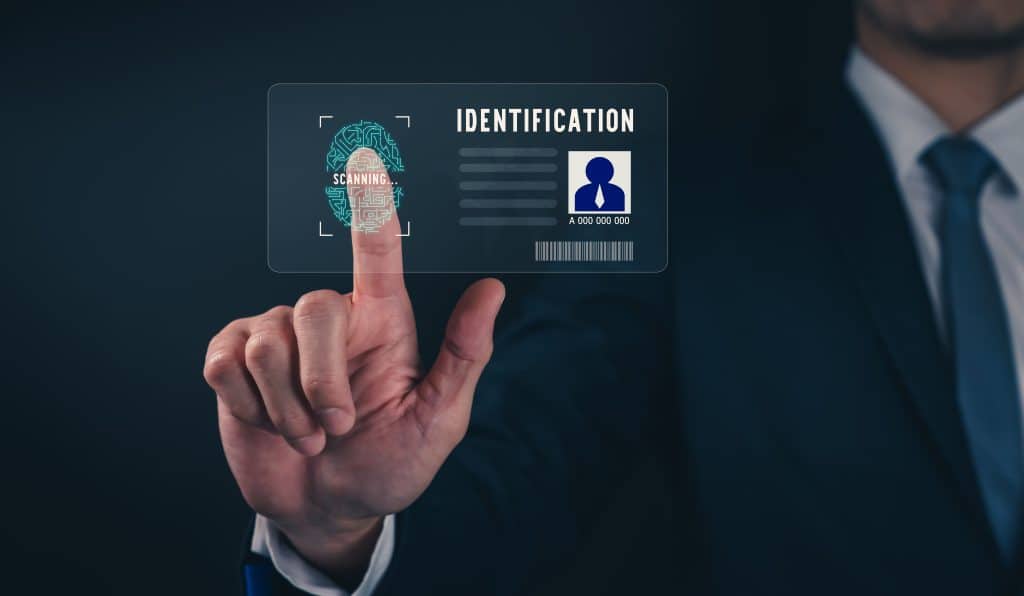Heard about Personal Identification Numbers? What if I tell you that in Germany, you are a few numbers?!
I’m not kidding.
For example, authorities assign a unique Steuer-ID to each resident of Germany at birth or when they first register. This ID will always be the unique Tax ID number.
In the German tax authority’s system (Finanzamt) you are this number. You will always be this number!
How interesting right?!
Types of Personal Identification Numbers
There are three different kinds of personal identification numbers in Germany:
- The Sozialversicherungsnumme or Social Security Number used by the Deutsche Rentenversicherung (DRV) or the German public pension office. It has a format like ‘12 123456 A 123’ and is an exclusive number that never changes. People sometimes refer to it as the SV-Nummer or SVNR
- The Tax Identification Number used by the Finanzamt or the Germaan Tax Office. It goes by a format like “12 345 678 901”.
- The National Identification Number refers to the identity card number, the top right corner one, on the German ID card. If an individual does not possess a legitimate ID card, mark this as “UNKNOWN” or “DOES NOT APPLY.”
Make sure to read: A Quick and Simple 101 Guide to Vegan Dining in Berlin
What does ‘Steuer-identifikationsnummer‘ or ‘Steuer-ID‘ mean?

Steuer-ID is your tax identification number . German authorities issue a unique Steuer-ID to every person residing in the country at birth or upon their initial registration. For the rest of your life, it will continue to be your unique Tax ID number.
Within a few weeks of a baby’s birth, parents receive letters containing their baby’s Steuer-ID; however, expats should receive their letters three weeks after registering in Germany. How’s that for a new beginning?
Since the Steuer-ID is generated at random, the number’s owner’s identity is kept a secret. Individuals must use it to handle all Einkommensteuer (Income Tax) matters and include it in all communications with the Finanzamt.
Obtaining a Steuer-ID
You just have to simply wait for it to arrive in the mail!
You can ask to have it mailed to you again if you lose it. Unfortunately, that might take some time.
You can only pick up your Steuer-ID in person or by mail due to security concerns.
But you need more than just the Steuer-ID to file taxes in Germany as a freelancer. You’ll need a Steuernummer in order to initially register as a freelancer.
Random Tip: The simplest way to get your Steuer-ID back if you’ve misplaced it or lost it is to go to your local Finanzamt. They will immediately issue it to you. Just remember to carry your passport or another recognised form of identification with you.
Also read: 13 Stunning Facts on the German Education System
What is a ‘Steuernummer‘?
Freelancers and enterprises in Germany use the Steuernummer, a special number, to identify themselves for tax purposes..
Now, Steuer-ID and Steuernummer share certain similarities. The German public was first introduced to Steuer-ID in 2007, although Steuernummer is a component of the previous tax system. Because the country values efficiency beyond anything (other than maybe their culture and food), Steuer-ID is eventually going to totally replace the Steuernummer, but for the time being, you still need both numbers to register as a freelancer or business owner in Germany and file your taxes.
The greatest distinction between the two is that, depending on where you live and which regional Finanzamt is in charge of you, your Steuernummer may change. Your Steuernummer changes if you relocate. But your Steuer-ID id is permanent and remains the same for as long as you live in Germany.
Obtaining a Steuernummer
A Steuernummer is essential to launch your freelance career, and you must apply for one at your neighbourhood Finanzamt! Without it, you will be unable to submit invoices or file your taxes.
The documents you need to provide to the Finanzamt may vary depending on whether you are a solo freelancer, the owner of a small firm with employees, and whether you operate within Germany or internationally.
Before heading to the Finanzamt, it is advisable to inquire about the specific requirements in your particular situation.
What is an ‘Umsatzsteuernummer‘?
Your VAT number is your Umsatzsteuernummer (or USt-IdNr). This number helps in identifying you while paying VAT to the Finanzamt. It goes by a nine digit ‘DE123456789’ format.
Obtaining a “Umsatzsteuernummer“
In Germany, obtaining a VAT number is simple. You will receive a VAT number after completing the Fragebogen zur Steuerlichen Erfassung (Questionnaire for Tax Registration) on Elster.
Why are these Numbers Important?

The Federal Ministry of Finance and the German government wanted to streamline the taxing procedure and decrease bureaucracy by implementing the tax identification number. Data sent electronically to the revenue administration is sent using the identifying number. Similar to that, it makes it possible to combine several data sets that pertain to the same individual and clearly identify that person.
We think you’ll love this: Everything You Need to Know About ‘Ruhezeit’ or the German Quiet Hours
Who is Responsible for Issuing Tax Identification Numbers?
The identifying number is used to electronically transmit data to the revenue administration. This occurs automatically for people residing in Germany when the Federal Central Tax Office receives the person’s registration information from the German registration authorities.
You don’t need to do anything if you don’t live in Germany and merely get pension payments from there. Following the conclusion of the calendar year in which the pension was received, the pension provider is required to transmit a notification of pension payments to the appropriate tax office. Your identifying number is necessary for the pension provider to complete this.
Please let the pension provider know if you haven’t received an identification number yet if they ask for it. Consequently, the pension provider will exchange information with the Federal Central Tax Office in this situation, resulting in the issuance of a new identification number for you.
If you already have an identification number, perhaps through prior employment in Germany, the situation is different. If so, kindly inform the pension provider of this number no later than the time you retire.
And regarding pension, if your pension provider is unfamiliar with the computerized system for requesting an identification number or is experiencing communication issues, you may obtain further information from the Zentrale Zulagenstelle für Altersvermögen (ZfA) pension agency by calling their hotline at (+49 (0)3381 21 22 23 90) or visiting their website.
Why Do You Need a Tax ID?

To calculate your salary tax, your employer needs your tax ID. While a tax ID is not required to begin employment, it is necessary to pay the correct amount of salary tax.
Your employer will put you in tax class 6 and charge you a higher salary tax if you don’t have a tax ID. Later, either with subsequent pay cheque or when you submit a tax return, you will receive that money back.
If you have children, you must provide their tax identification number in order to apply for Kindergeld and obtain a Kitagutschein.
A tax ID is also necessary when starting a business.
Don’t forget to read: Top 8 German Television Shows and German Cinema – Your New To-Watch List
Where to Find your Tax ID?
You can find your tax ID here if you already have one in the following documents:
- After you initially register your address with the Bundeszentralamt für Steuern, your “Persönliche Identificationsnummer” will appear on the document you receive from them.
- As “Steuer ID” on your pay stub (Gehaltsabrechnung)
- As “Identifikationsnummer” on your salary tax statement (Lohnsteuerbescheinigung)
- As “IdNr” on your tax return (Steuerbescheid)
- On your Entgeltabrechnung (Payroll)
- Both your employer and tax advisor know your Tax ID. Enquire with them.
How Does German Tax Identification Number Work for Freelancers?
Just to confuse you further, you will receive a different tax number when you register your own firm as a freelancer or self-employed!
This tax identification number resembles the non-business tax identification number you receive with your initial tax assessment. On every invoice you write, you must include your business or freelance tax ID number.
You must complete a relatively challenging seven-page form known as the Fragebogen zur Steuerlichen Erfassung (questionnaire for tax registration) when registering your firm with the Finanzamt.
What Is the German VAT Number?

Umsatzsteuer-Identifikationsnummer, or USt-ID, is the name given to the VAT number in Germany. It goes in a format like DE123456789, a 9-digit number that begins with the country code (DE for Germany).
Every company that conducts business in the EU and outside of Germany requires a VAT number. You do not require a VAT number if you simply conduct business within Germany or register a tiny side business (Kleingewerbe). Instead of your business tax number, you must substitute your VAT number on each invoice and in the imprint (Impressum) of your website.
When registering your firm, be sure to check the appropriate box on the Fragebogen zur steuerlichen Erfassung (questionnaire for tax registration) to request a VAT number.
We strongly suggest you to speak with a qualified tax consultant if you have any tax-related queries about your own firm.
New Reforms
The German Bundestag recently approved a proposal to replace the tax identification number with a comprehensive “citizen identification number” (Bürger-Identifikationsnummer). The concept of streamlining and simplifying administrative procedures, although privacy advocates are wary about it.
The Register Modernization Act, which was approved by the Bundestag opened the door for a reform that would change the tax ID into the Bürger-ID. The new citizen ID number would have the same personal information as the tax ID, but logically, it would be available to several German government organisations and agencies.
The idea is that centralizing these details enables authorities to swiftly access necessary information by entering a person’s citizen ID number, eliminating the need for individuals to repeatedly furnish personal information like date and place of birth, address, or marital status, along with supporting documentation such as birth certificates or registration certificates.
If the Federal Council approves, the information already on tax IDs will be shared with about 50 additional authorities. This includes those in charge of registrations, weapons licences, driver’s licences, pensions, and health insurance.

Importantly, though, multiple data queries would only be allowed if the person in question consents to the sharing of their data. Everyone would simultaneously have access to their own data through a “data cockpit” (Datencockpit). This allows them to verify which authorities are in possession of their personal information.
The planned reform has received a lot of criticism even with this caveat. Given its history, it’s not surprising that Germany has always taken data protection and privacy very seriously. As a result, many people there have a very low level of trust in the idea of government officials “sharing data.”
The new law was unanimously rejected by opposition parties. This is because they believe it to be fundamentally at odds with the Basic Law of Germany. The use of the tax ID as a standardised personal identification according to Manuel Höferlin, the FDP parliamentary group’s digital policy spokesman, is constitutionally very dubious. Similar accusations were made by the Greens, but the Left and the AfD rejected the idea.
Now that the Federal Council must weigh in, it is questionable whether the new law will pass given that it has previously raised potential constitutional issues with the idea of a Bürger-ID.
Don’t forget to read: Top 8 German Television Shows and German Cinema – Your New To-Watch List
All About Personal Identification Numbers
Steuer-ID, Steuernummer, Steuernummer for Self-Employed, and VAT number, are all just different numbers used for various purposes in Germany. We hope this article made it a little press confusing for you to navigate the German Personal Identification Numbers maze.
Statutory Warning: Under the German law, neither Urban Ground as a company nor I as the article’s author are qualified to offer tax advice.
But jokes apart. beyond any of the broad advice offered here, we are unable to offer specialised tax services. We firmly advise you to speak with a qualified tax counsellor for tax guidance.
Toodles!






